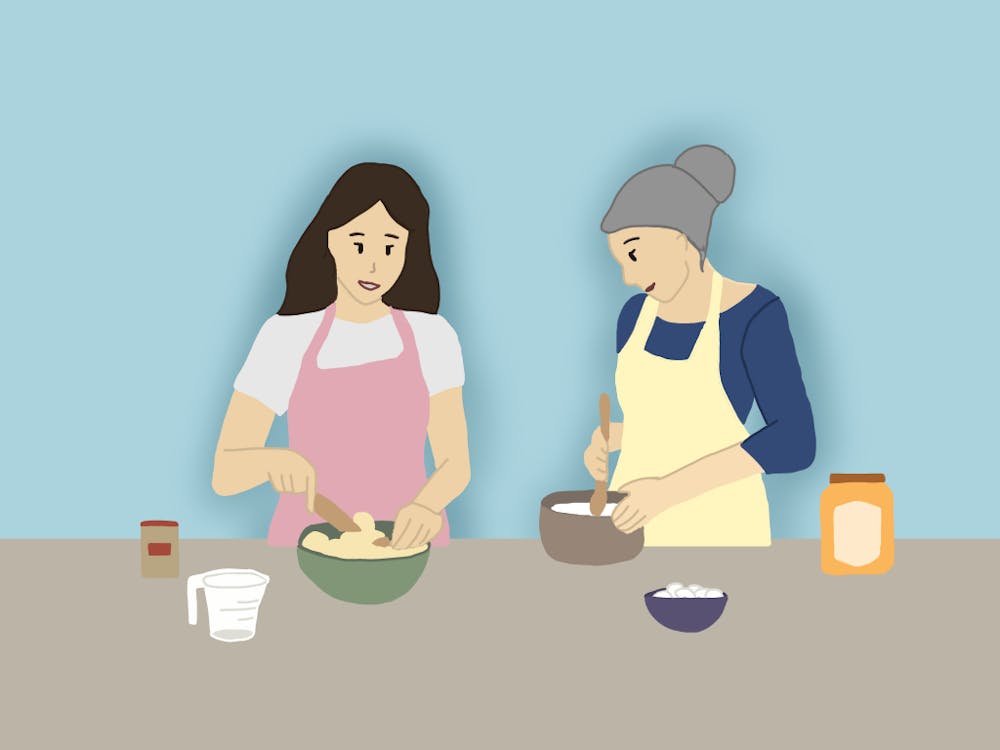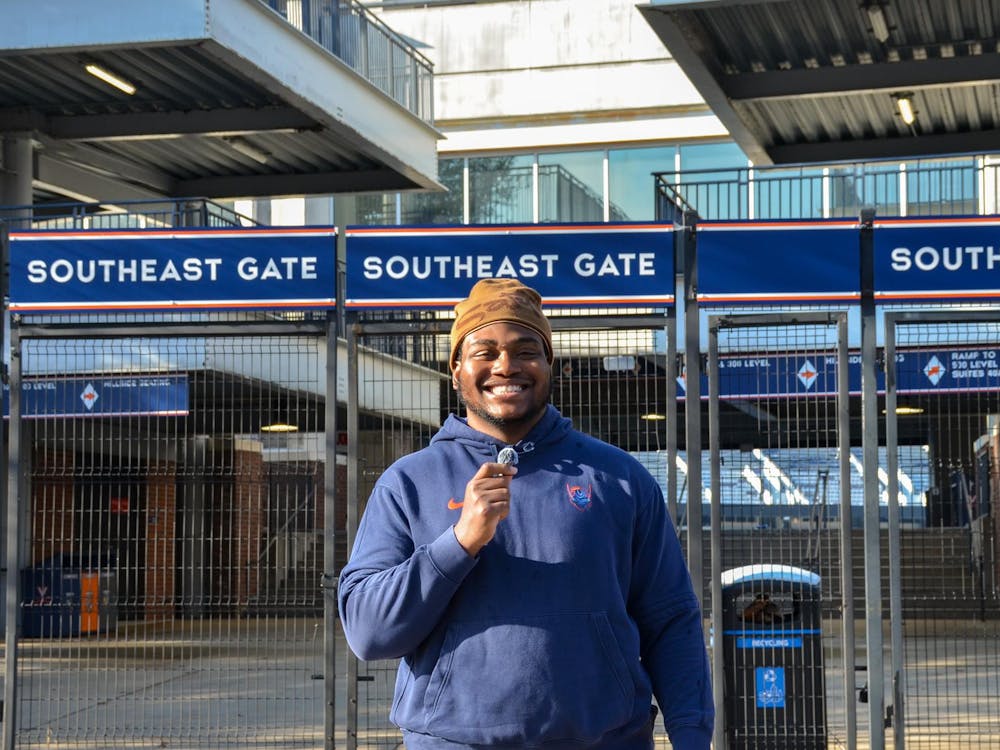Wahoo: The most widely-known use of the word can be found in the cheer at the end of the "Good Old Song." Although the origin of the nickname is lost to many students, nowadays most associate it with the drinking culture at the University.
"I have to admit, when I hear the term 'Wahoo,' I think of those T-shirts that people wear which claims that a wahoo is a fish that can drink up to three times its size," third-year College student Alexandra Greilsamer said. "And if you accept the analogy between the wahoo and the U.Va. student, then you are not talking about drinking water."
Despite the known associations between drinking and the infamous nickname, several students said they do not consider the University to have a drinking problem.
Fourth-year Engineering student Hannah Williams said she considers drinking to be a part of the University culture, as it is at many other universities around the country, but she herself chose not to drink until she turned 21.
"Here we work hard and play hard," Williams said. "Drinking is a universal thing at college, I think."
Dean of Students Penny Rue said although she finds the University not to be different than other colleges in regards to alcohol, there are factors that amplify perceptions about drinking.
"I think because we have a traditional-aged population, a residential environment and a strong Greek system combined, it makes alcohol more prominent here than some other schools," Rue said. "But the fact that we have a strong enforcement system and a very well-informed residential staff means that it doesn't get out of hand."
Susan Bruce, director of the Center for Alcohol and Substance Education (CASE), said most of the student body tends to exaggerate the level of drinking at the University. According to a survey conducted by CASE last spring, 12 percent of the undergraduate population said they did not drink, while 25 percent of the students said the last time they drank alcohol was more than a month before.
In addition, on a typical Friday night, only five percent of the students said they involve in what CASE deems to be high-risk behavior -- having six or more drinks.
"It is true that many students here do have that 'work hard, play hard' mentality, but you have to remember that not everybody equates 'play' with drinking," Rue said.
Bruce said students have many reasons for not drinking.
"There are a wide variety of reasons why some students, despite all the hype fostered by movies depicting college in terms of alcohol and substance abuse, don't drink," Bruce said. "Some wait until 21 not to face legal consequences, some have alcohol problems in their family so they know that they are at risk, some for religious reasons and some who engage in situational abstinence because they will be driving or have an interview the next day."
Many students said a lot also depends on the group of friends and organizations that the person is involved in.
Williams said she was able to find a social outlet that did not involve drinking through Chi Alpha, a Christian fellowship organization on Grounds.
Rue said although the Greek system is usually the main social group associated with alcohol, that perception does not always match reality.
"I think the reason most people consider the Greek system when dealing with alcohol and drinking is because they are the most visible," Rue said.
Inter-Fraternity Council President Andy Paradis said he does not find the Greek system to be exceptional in promoting drinking at the University.
"Like a bar or a restaurant, the Greek system's social scene is another outlet for drinking," Paradis said. "The same laws still apply. You have to be 21 to legally drink. The environment at a fraternity party should be the same as going to a bar, in terms of who is drinking. Granted, there are always those who choose to drink under the age of 21. However, I know many people involved in the Greek system who have chosen not to drink or to wait until they are 21 to drink."
Paradis also stressed the efforts the Greek community makes to educate people about alcohol and substance abuse.
"I think that people don't recognize the efforts of the fraternities and IFC as a whole in promoting safe drinking," Paradis said. "We are working with CASE and ADAPT to promote safe drinking and educating first years. We have an entire system set up in place with party patrol to create a safe atmosphere. And, this year, we are also working with an HIV/AIDS awareness group that will provide the fraternity parties with water bottles to have an alternative to alcohol for students who don't wish to drink."
Braden McIntosh, a fourth-year Engineering student and a Sigma Chi brother, said he felt no pressure from his fellow fraternity brothers when he told them of his decision to not drink his second year.
"I think when I first told everyone I'd be sober after my first year summer, everyone was shocked because I had been extremely crazy the year before that," McIntosh said. "But the guys were awesome about it. They not only accepted it -- the fact that I wouldn't drink until I was 21 -- but also respected it."
McIntosh said it was important to distinguish between drinking and drinking to the extreme.
"I feel like a lot of people can lubricate their conversations with alcohol, so for me it has always been important to have as coherent conversations as possible which alcohol can hinder," McIntosh said. "But the real problem for me is making poor decisions -- the feeling of waking up and knowing that I did something I wouldn't have done otherwise."
Rue said drinking becomes a problem when the students are unaware of the consequences of their actions.
"Forty-six percent of our students come in with a history of drinking in high school, but the [other] 54 percent of our students come in absolutely unaware of its risks and how to moderate it," Rue said. "Perhaps it is a rite of passage or peer pressure or whatever reason -- some of these students end up having 15 drinks in one night and end their night in the emergency room."
Bruce said one of the main goals of CASE is the education of first year students.
"There are a number of first year students who come in not having drunk at all or having drunk little in high school and worry that U.Va. is a party school," Bruce said. "We try to make them aware of things that are going on during orientation of 1,300 incoming students. We take not an anti-alcohol but a multifaceted approach."
Williams said, as a first year, it was a challenge finding alternatives other than making the usual trek down Rugby Road.
"At my dorm, people were really into partying, so it was hard for me sometimes, but I know that wasn't the case for all dorms," Williams said.
Rue also said Rugby Road might be an easy option, but it is not the only one for first-year students.
"We hear from our students at first that they have some difficulty finding many different alternatives and the default option is to go down Rugby Road," Rue said. "You don't have to think, you don't have to research, you know it's there. So it does take a little bit of resourcefulness to find activities suited for you, but there are choices out there. There is always something going on at U.Va., and it doesn't necessarily mean alcohol."






